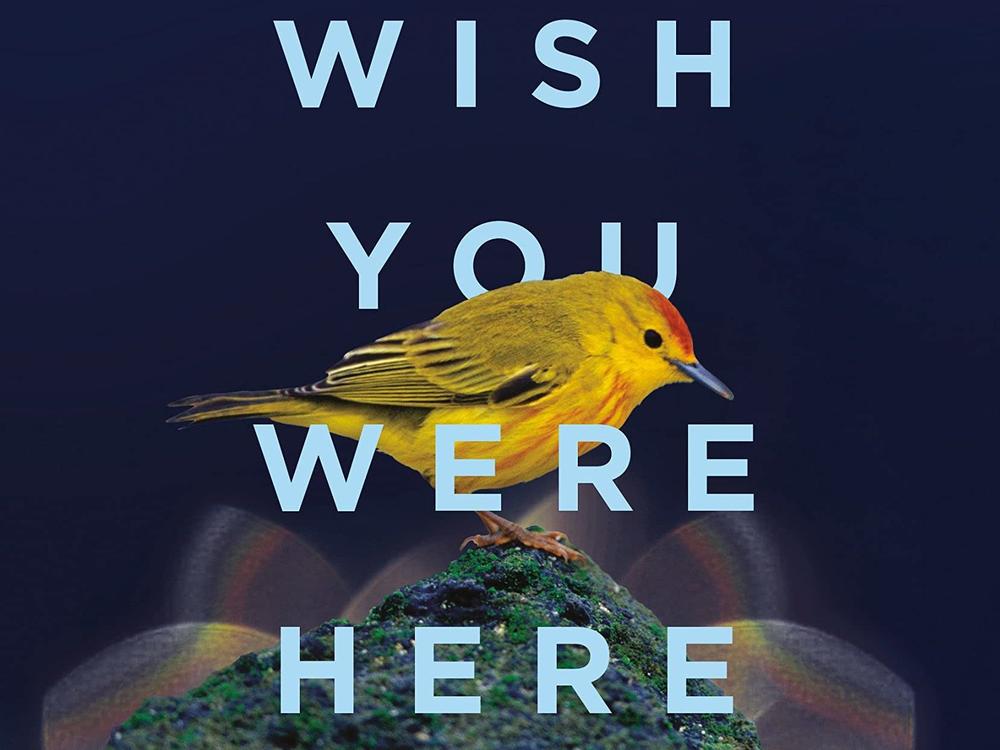Section Branding
Header Content
Famed author Jodi Picoult novelizes the pandemic in new book 'Wish You Were Here'
Primary Content
Author Jodi Picoult says she couldn't wrap her head around how she might tell the story of the pandemic — to both memorialize it and make sense of it.
That was until she heard the true story of a Japanese tourist that ended up stranded in Machu Picchu due to the COVID-19 outbreak. Instead of going back home to Japan, the tourist, named Jesse Katayama, wound up staying in the gateway community of Aguas Calientes for months until the government offered Katayama special permission to see the historical site.
"I thought, oh, I've never been to Machu Picchu. I can't write about that, and I'm not going in 2020," Picoult told Scott Simon on Weekend Edition. "But I have been to the Galápagos. We took our kids there many years ago, and it's everyone's bucket list destination. And I thought, surely somebody got stuck there."
Picoult did find someone. There was a young Scottish man trapped in the Galápagos. She tracked him down and did an interview with him and the families he stayed with. From there, she began to craft her story.
In Picoult's 26st novel Wish You Were Here, released Tuesday — with rights already sold to Netflix — she centers on Diana O'Toole, who is on the verge of 30, an associate specialist at Sotheby's and about to fly off to the Galápagos with her boyfriend, Finn, who's a surgical resident. Everything is going according to plan for Diana.
Then March 13, 2020 happens. The pandemic.
Finn is told by his boss, as Picoult notes, "You are not allowed to leave the hospital. And he says to his girlfriend, 'Look, this vacation is paid for. You should go.'"
And so Diana does. But upon arrival, she is told the island will shut down for two weeks. Her accommodations are voided, and she has to find a way to get by on an island that does not have stable Wi-Fi or good cell service.
She's all alone on the island where Charles Darwin's theory of evolution by natural selection was formed. Picoult said being there "it's like a beautiful metaphor."
Diana begins re-evaluating her life — her relationships, choices and herself — wondering when she returns back home, would she have evolved into another person?
"Diana really learns to re-evaluate the goals she had and the life she wanted and begins to ask herself, 'Why did I want those things in the first place?' - which I think is an experience that many of us had," Picoult said. "The pandemic was such a strange time because we were all so isolated, but we were all feeling the same things. You know, we just weren't connecting about it."
In the Galápagos, Diana learns a lot, not just about herself, but also her job and art, working with impressionist paintings.
"I kept thinking a lot about impressionism, and I kept thinking about how if you see a Monet painting from 6 inches away, it's a lot of blobs of pretty color," Picoult said. "But if you step back a few feet, you go, 'Oh, it's a cathedral; oh, it's water lilies' — because you have perspective. And we are just now beginning to get perspective on what 2020 was."
As for Picoult, she said learned a lot too, noting how she's a "control freak." And like a lot of us, she said she learned that it's OK to grieve for the things you've lost.
But she also pointed to the idea that maybe some of us found new measures of success.
"Maybe it's not getting a degree or a promotion or a slot on a bestseller list," she said. "Maybe instead it is having your health and knowing your family's healthy, having a roof over your head, being able to hold the hand of someone who's dying," she said. "You know, and suddenly, I think having all these new senses of what our priorities are, that's what I'm really interested in. Maybe we will be better and stronger in the future because of it."
NPR's Ian Stewart produced Scott Simon's interview with Jodi Picoult for NPR's Weekend Edition. Kroc Fellow Mia Estrada adapted it for the web.
Copyright 2021 NPR. To see more, visit https://www.npr.org.

